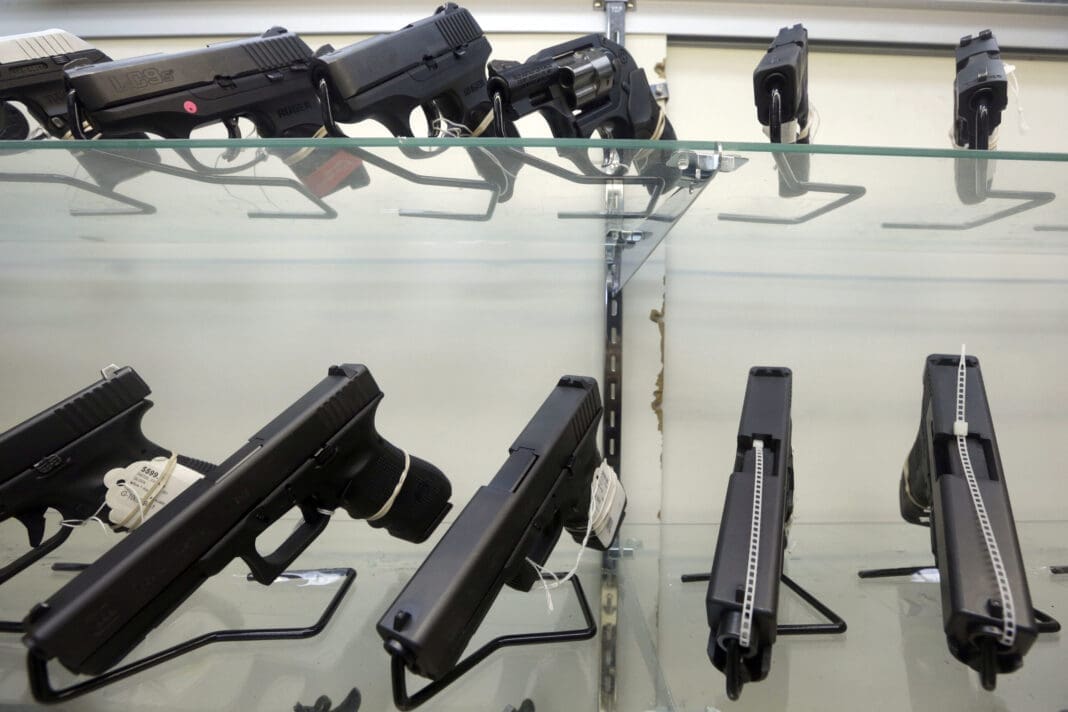Lawmakers close in on online voter registration in New Hampshire
New Hampshire lawmakers are inching closer to creating a statewide election portal, a bipartisan proposal that would allow residents to register to vote online.

New Hampshire lawmakers are inching closer to creating a statewide election portal, a bipartisan proposal that would allow residents to register to vote online.
Under the proposed legislation, House Bill 463, the secretary of state would be empowered to create an online tool to let voters fill out a new voter application, request that an absentee ballot be mailed to them, and make any changes to the voter registration database – including their name and party affiliation.
Currently, most of those tasks must be done in person, either by a set deadline before the election or on Election Day. Proponents of the bill say it would make it easier for voters of all ages to register and would ease the workload for town poll workers, who are often inundated with new voter registrations on the day of major elections.
The portal would cost $426,000 to set up and about $84,000 per year to maintain, according to projections from the Secretary of State’s Office.
The move would bring the state in line with much of the country. New Hampshire is one of nine states that do not offer online voter registration, along with Arkansas, Maine Mississippi, Montana, North Dakota, South Dakota, Texas and Wyoming, according to the website Ballotpedia.
Backers of the effort say it is simply a tool – not a new form of registration.
“My belief is the implementation of a voter portal should not change the current process of how a voter registers to vote,” said Secretary of State Dave Scanlan at a Senate hearing Tuesday. “What the portal should do is streamline and improve the process to cut down time at the polling place and to improve the data collection by the supervisors of the checklist and the clerk in an electronic form.”
The New Hampshire Senate passed an election information portal bill in 2022, but House Republican lawmakers balked at the cost of that proposal – $11.5 million – and the bill was killed by the House in a voice vote.
This year, the new version of the bill passed the House, 195-172, but could have broader support in the Senate, where Republican Senate Election Law and Municipal Affairs Chairman James Gray has spoken in favor of it.
Supporters, including voting rights advocates from Open Democracy and America Votes, say the portal would help a number of voters, including those who are working when town offices are open and are unable to make it in person, as well as people with disabilities and voters overseas, who will no longer need to coordinate their time zones to call a town clerk.
“There’s a lot of good with this bill that makes it more efficient for the average Joe,” said Autumn Raschick-Goodwin, program coordinator for Open Democracy. “A lot of people work during the hours of the town clerk’s offices being open. So this would give them the opportunity to do this in their availability and get that ball rolling so that they’re able to arrange things more effectively.”
Voters who move to new towns or new wards within their city would be able to easily update their voter registration on their own time, proponents add.
“We hear a lot about people getting mail and their mail has been sent back because they don’t live there anymore,” said McKenzie St. Germain, voting rights campaign director for America Votes. “Being able to update their voter information as soon as they move I think is a huge benefit.”
Supporters also argue the portal would boost clerks themselves, in particular by reducing the number of handwritten voter registration applications that can be hard to read and create errors. And they say it could save money, noting that the cost of processing paper registrations can be nearly $5 per voter.
“My name is never quite clearly written because I’m in a hurry,” said St. Germain. “That is the case on many of the voter registration forms.”
But before its floor vote in January, some House Republicans raised concerns that the portal did not include sufficient oversight and could expose voters’ information to security breaches.
“There are concerns by many voters that too many changes have already been made to the voting process that have eliminated much of the needed oversight,” said Rep. Clayton Wood, a Pittsfield Republican. “Many voters feel that opening the application process to the internet is another way to expand fraud and decrease the overall security of personal voter information.”
At the Senate hearing, Gray sought to address those concerns, noting that the online portal would not allow people to change their voter registration automatically. Rather, he said, it would allow a voter to submit their application and accompanying documentation online. The town clerk would still need to verify the voter’s identity and residence in the town, just as if the new voter had come to the town offices in person, Gray noted.
“Nothing changes the requirements under current law with respect to what you need to show how you need to register to vote,” said Rep. Mark Paige, an Exeter Democrat and the sponsor of the bill, agreed. “This is really an efficiency mechanism.”
This story was originally published in the New Hampshire Bulletin
Recommended

Democrats regain full control of state House with two special election wins
In special elections on Tuesday, state House Democratic candidates Peter Herzberg and Mai Xiong scored victories in two Southeast Michigan districts to help secure a 56-54 voting majority for their caucus.
By Ken Coleman, Michigan Advance - April 17, 2024
Colorado House approves historic ban on ‘assault weapons’
Measure, opposed by every Republican and 9 Democrats, heads to Senate
By Sara Wilson, Colorado Newsline - April 14, 2024
Maine House censures two GOP members for blaming mass shooting on abortion law
‘Your remarks were extremely offensive and intentionally harmful to the victims and the families of the Lewiston tragedy, the House of Representatives, and the people of Maine,’ wrote Speaker Talbot Ross
By Evan Popp, Maine Morning Star - April 11, 2024










































































